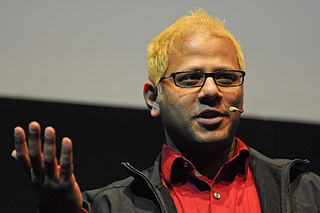A Quote by Martine Syms
Representation is a sort of surveillance.
Quote Topics
Related Quotes
Many agricultural counties are far more important in the life of the State than their population bears to the entire population of the State. It is for this reason that I have never been in favor of restricting their representation in our State Senate to a strictly population basis. It is the same reason that the founding fathers of our country gave balanced representation to the States of the Union, equal representation in one House and proportionate representation based upon population in the other.
No matter the specific techniques involved, historically mass surveillance has had several constant attributes. Initially, it is always the country’s dissidents and marginalized who bear the brunt of the surveillance, leading those who support the government or are merely apathetic to mistakenly believe they are immune. And history shows that the mere existence of a mass surveillance apparatus, regardless of how it is used, is in itself sufficient to stifle dissent. A citizenry that is aware of always being watched quickly becomes a compliant and fearful one.






































